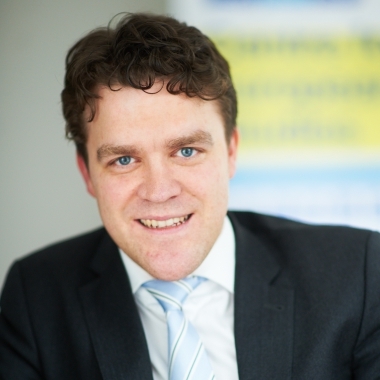European Political Parties and the rise of Populism
07 April 2011
In the last week of March, three European political parties organised separate conferences on political populism. The Centre for European Studies, the official think-tank of the European People’s Party (EPP); the Alliance of Liberals and Democrats for Europe (ALDE); and the Greens / European Free Alliance (GEFA) all organised meetings in the European Parliament on the rise of populism and on developing responses to this phenomenon.
Throughout Western Europe, right-wing populist challengers are currently playing on anti-Islam and anti-immigration sentiments. The outstanding example is the charismatic Dutchman Geert Wilders who is managing to dangle the minority government on a string. His one-member party is a new challenger to the established parties. Similar challengers have appeared on the scene in Sweden and Finland. Other, existing right-wing populist parties are showing the ability to reinvent themselves. In Austria, Heinz-Christian Strache has replaced Jörg Haider at the helm of Freiheitliche Partei Österreichs (Freedom Party of Austria) and in France, Marine Le Pen has stepped in her father?s shoes as the leader the Front national (National Front). In the changing party systems in Central and East Europe, populism is has become visible as a political phenomenon for some time already. The three conferences organised in the European Parliament last week reveal the differing approaches of the EPP, ALDE and GEFA to political populism.
The EPP conference focused specifically on the foreign policy dimension of populism, using a paper by CES Angelos-Stylianos Chryssogelos. It debated the similarities between right-wing and left-wing populism in Europe. Both left and right-wing populists pit „the people? against the elites. For the left-wing populists, the people are defined as against the international capitalist elite. The right-wing populists describe themselves as the protectors of „their? nations against immigrants and the minorities. The populists often appeal to foreign policy issues. These can be transformed to simple mobilising slogans where enemies are clearly defined. These patterns are then used to frame domestic policy issues.
The ongoing „Arab Spring has put the right-wing populists in disarray: The democratic movements in North Africa and the Middle East are damaging the claims that Muslims are inherently incapable of democratic self-government. In contrast to the EPP approach, the Liberals? and the Greens? conferences on populism focused mostly or exclusively on right-wing populism, ignoring parties such as Die Linke (The Left) in Germany and the loose but sometimes violent left-wing populist movement like in the Anti-Globalisation Movement that is on the rise in Greece. At the ALDE Group?s conference, the Liberal leader Guy Verhofstadt mentioned that the Perussuomalaiset (True Finns) are likely to be the largest party after the Finnish elections take place in a few weeks. He described other examples of extreme and populist parties in Slovakia, Hungary, France, the Netherlands and Belgium. He characterised the Alliance of Liberals and Democrats as standing in opposition to these anti-liberal values in politics.
Finally, as was the case in the previous conference, some of the approximately sixty participants lumped different figures together by mentioning Jörg Haider and Viktor Orbán in the same context as former liberals and later radical-populists. The conference of the Greens, moderated by Daniel Cohn-Bendit, MEP, emphasised that right-wing extremist attitudes are already present in the mainstream of European societies. The founder of the Anti-Globalisation movement, French farmer José Bové was present at the Greens? conference. He warned of the new danger of the right-wing forces. Bové, a Member of the European Parliament as of 2009, failed to mention that he has spent time in prison for completely destroying a McDonald’s restaurant in France. At the Greens’ discussion, right-wing populism and right-wing extremism were generally used synonymously.
Participants spoke of a significant danger of “extreme and populist force” in the European Parliament. Viktor Orbán, Marine Le Pen and Geert Wilders were lumped together in the same context. The Greens’ conference also featured a highly regarded European expert on this topic, Cas Mudde. Mudde emphasised that it is politically short-sighted to bundle together populist parties, such as the Nieuw-Vlaamse Alliantie (New Flemish Alliance, N-VA) in Belgium, winner of the 2010 general elections, and the Flemish Interest (Vlaams Belang,) a far-right extremist force. He stressed the need for mainstream parties to tackle and reframe issues that the populists tend to put on the agenda, such as street crime, instead of just vilifying their use. None of the three conferences offered ready-made solutions to the problem of populism. The Liberal and Green conferences – although welcome – did not distinguish between right-wing populism and extremism, and completely neglected left-wing populism. The nature of populism, left and right, is flexible and chameleon-like, not based on a fixed ideology. Populism can radicalise the political discourse and swing the tone of political debates.
ENJOYING THIS CONTENT
